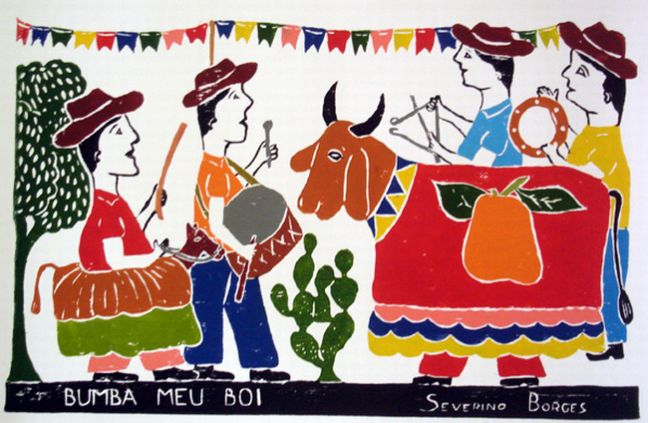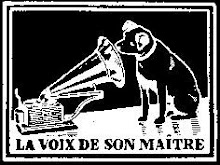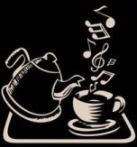Jim Hall - Live!
1975
Tracks:
01. Angel Eyes (Dennis-Brent)
02. 'Round Midnight (Monk-Williams-Hanighen)
03. Scrapple from the Apple (Parker)
04. The Way You Look Tonight (Kern-Fields)
05. I Hear a Rhapsody (Baker-Fragos-Gasparre)
Personnel:
Jim Hall (Guitar)
Don Thompson (Double Bass)
Terry Clarke (Drums)
Recorded live at Bourbon Street, Toronto, Canada in June 1975. (09/10/1975/09/11/1975).
Originally released on Horizon Records (705).
1975
Tracks:
01. Angel Eyes (Dennis-Brent)
02. 'Round Midnight (Monk-Williams-Hanighen)
03. Scrapple from the Apple (Parker)
04. The Way You Look Tonight (Kern-Fields)
05. I Hear a Rhapsody (Baker-Fragos-Gasparre)
Personnel:
Jim Hall (Guitar)
Don Thompson (Double Bass)
Terry Clarke (Drums)
Recorded live at Bourbon Street, Toronto, Canada in June 1975. (09/10/1975/09/11/1975).
Originally released on Horizon Records (705).
This was the first Jim Hall album I bought many years ago - I still
think it's one of his best - and I've waited many years for it to be
released on cd. Jim Hall is now in his early 70's. Hall is frequently
listed as a major influence on the large number of jazz guitarists a
generation younger than him, including Pat Metheny, Bill Frisell, John
Scofield, Mick Goodrick and Mike Stern.
This recording catches Hall in his prime with many lengthy solos; something you don't often hear from him. It's from a 1975 club date with Don Thompson on bass and Terry Clarke on drums. The record starts with a lengthy version of the minor key standard Angel Eyes. Halls improvising is exploratory and inventive - you never feel that he's falling back on cliches or familiar patterns. His solos are frequently chord and rhythm based rather than just single note phrases for verse after verse. He keeps flashiness to a minimum but his playing is complex. Scrapple From the Apple, the Charlie Parker bebop tune, is also of note. Hall veers away from a typical bebop solo and works with dynamics; contrasting single note versus chord phrases and moving from a duet section with Clarke to the full trio again.
This should be "required" listening for any student of jazz guitar but will also be rewarding for all lovers of jazz. ~ Amazon
This recording catches Hall in his prime with many lengthy solos; something you don't often hear from him. It's from a 1975 club date with Don Thompson on bass and Terry Clarke on drums. The record starts with a lengthy version of the minor key standard Angel Eyes. Halls improvising is exploratory and inventive - you never feel that he's falling back on cliches or familiar patterns. His solos are frequently chord and rhythm based rather than just single note phrases for verse after verse. He keeps flashiness to a minimum but his playing is complex. Scrapple From the Apple, the Charlie Parker bebop tune, is also of note. Hall veers away from a typical bebop solo and works with dynamics; contrasting single note versus chord phrases and moving from a duet section with Clarke to the full trio again.
This should be "required" listening for any student of jazz guitar but will also be rewarding for all lovers of jazz. ~ Amazon
***
This is in my opinion his greatest recording (I have every other one as
well). First, it's a live recording and it has a freshness and
spontaneity that is sometimes missing in studio recordings. Hall's
playing is relaxed but incredibly sophisticated. He works these
standards in subtle and clever ways. His lines/solos are melodic and
story-like, but gently push the outer edge. Rhythmically there's pushing
forward and holding back in ways that excite and engage the listener.
This is subtle stuff, and it can be listened to for years while still
discovering new elements and nuances. Much of the album's success is due
to interplay between the three musicians (Don Thompson on bass and
Terry Clarke on drums). They are all equal players, not just a rhythm
section with a soloist. Don Thompson, in particular, is almost like a
guitar player playing duets with Hall. The feel of the trio reminds me
of Bill Evans w/ Scott LaFaro and Paul Motian. I very much wish Mr. Hall
would play more often in this sort of context. ~ Amazon
***
For young musicians interested in playing jazz what do you say to them?
What I usually say is a long distance quote from John Lewis. John had this School for jazz at the end of summer for three weeks up in Lenox Massachusetts. At the end of one three week session he was talking to the graduates and a couple of guys asked if there were any gigs out there? John said: "Wait, wait, you got it backwards."
What he was saying was that music gives you so much already. What the hell else do you want? This is your reward right here just being involved. And it is really just stunning what you can get out of music. It's unique; it's yours and its something to be cherished. Making a living is an added bonus occasionally, but I think you already have quite a bit if you can play. . ..
What I usually say is a long distance quote from John Lewis. John had this School for jazz at the end of summer for three weeks up in Lenox Massachusetts. At the end of one three week session he was talking to the graduates and a couple of guys asked if there were any gigs out there? John said: "Wait, wait, you got it backwards."
What he was saying was that music gives you so much already. What the hell else do you want? This is your reward right here just being involved. And it is really just stunning what you can get out of music. It's unique; it's yours and its something to be cherished. Making a living is an added bonus occasionally, but I think you already have quite a bit if you can play. . ..
~♥~











%20-21%2025.jpg)














































+Front.jpg)
















